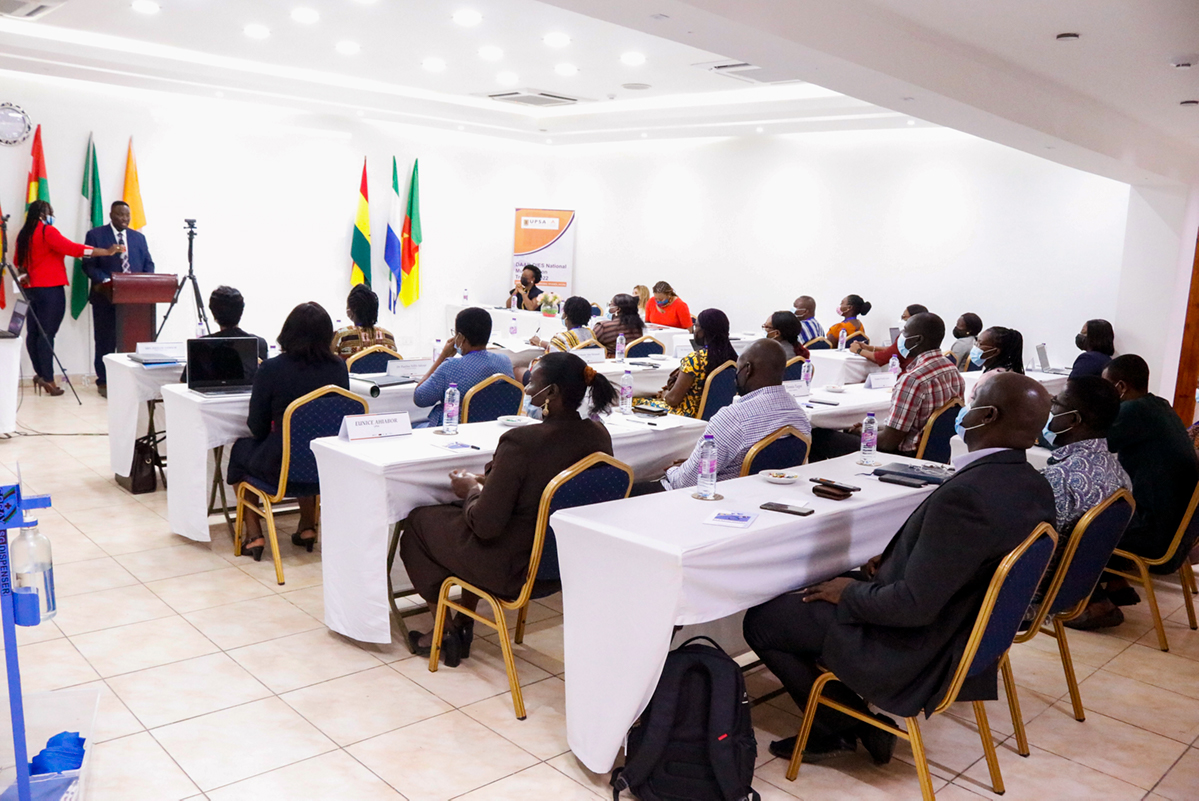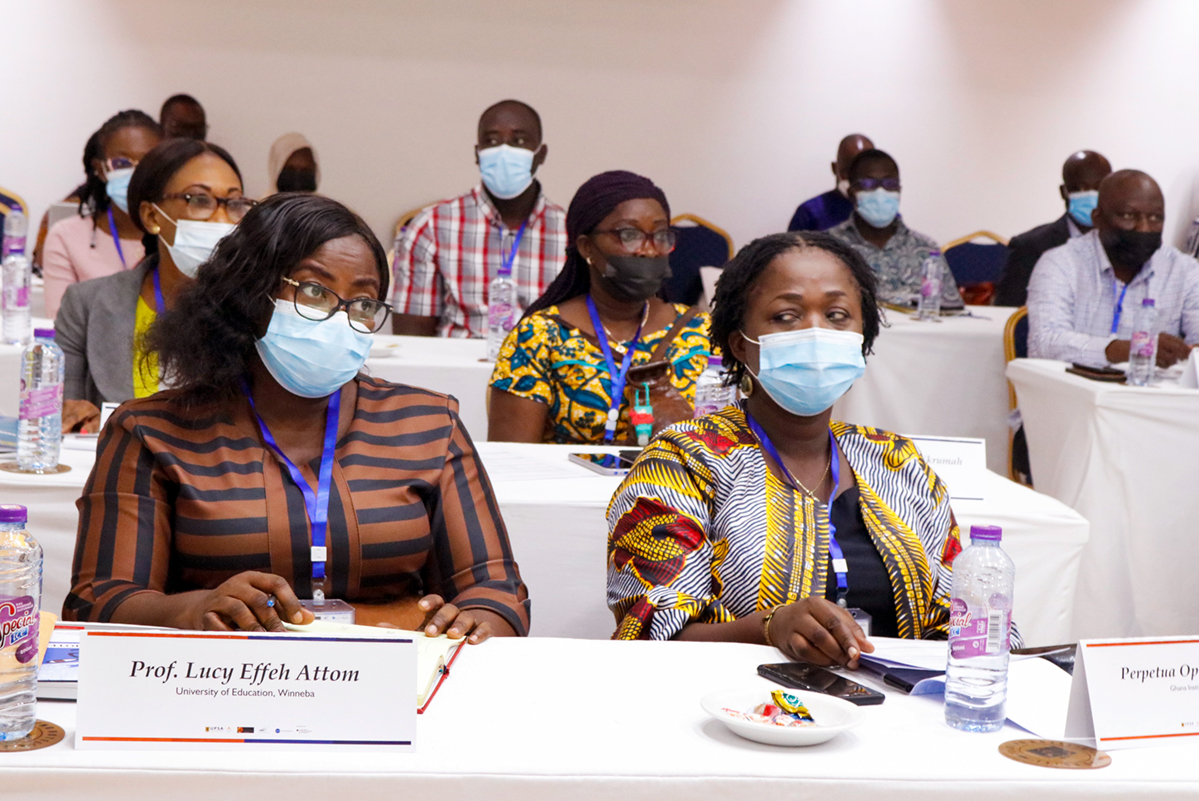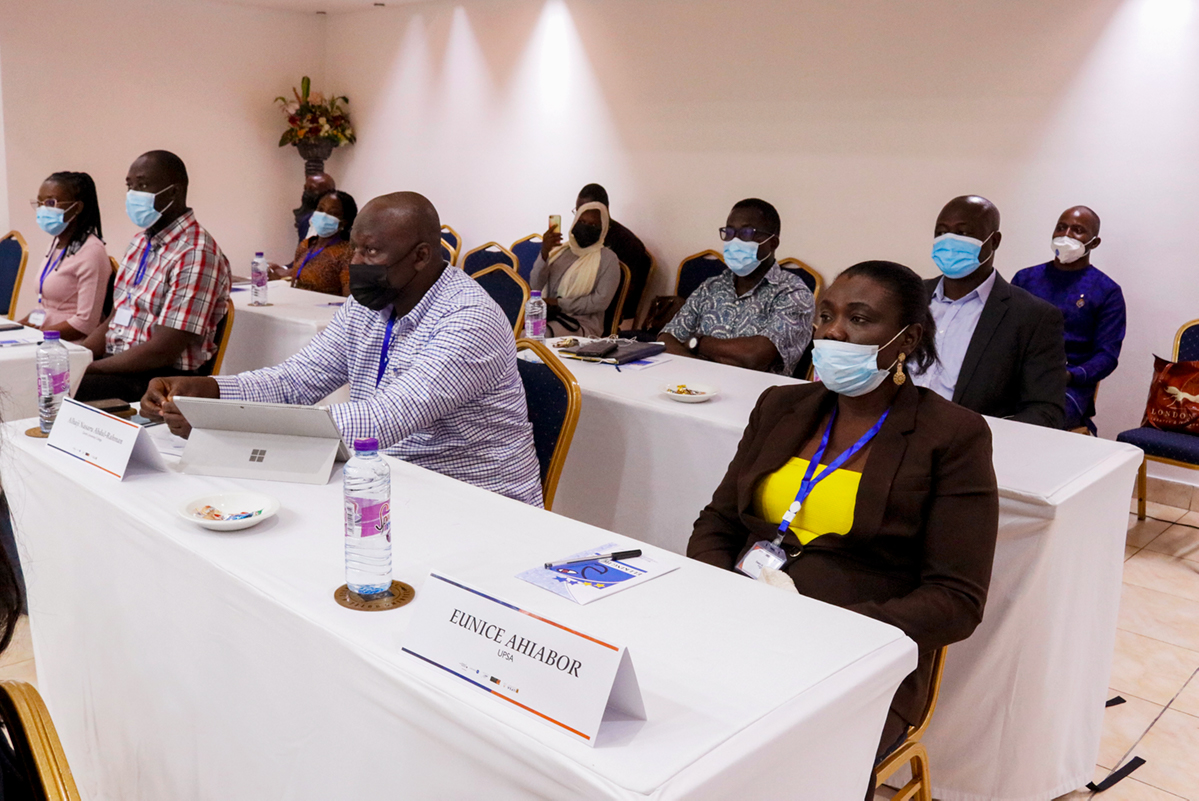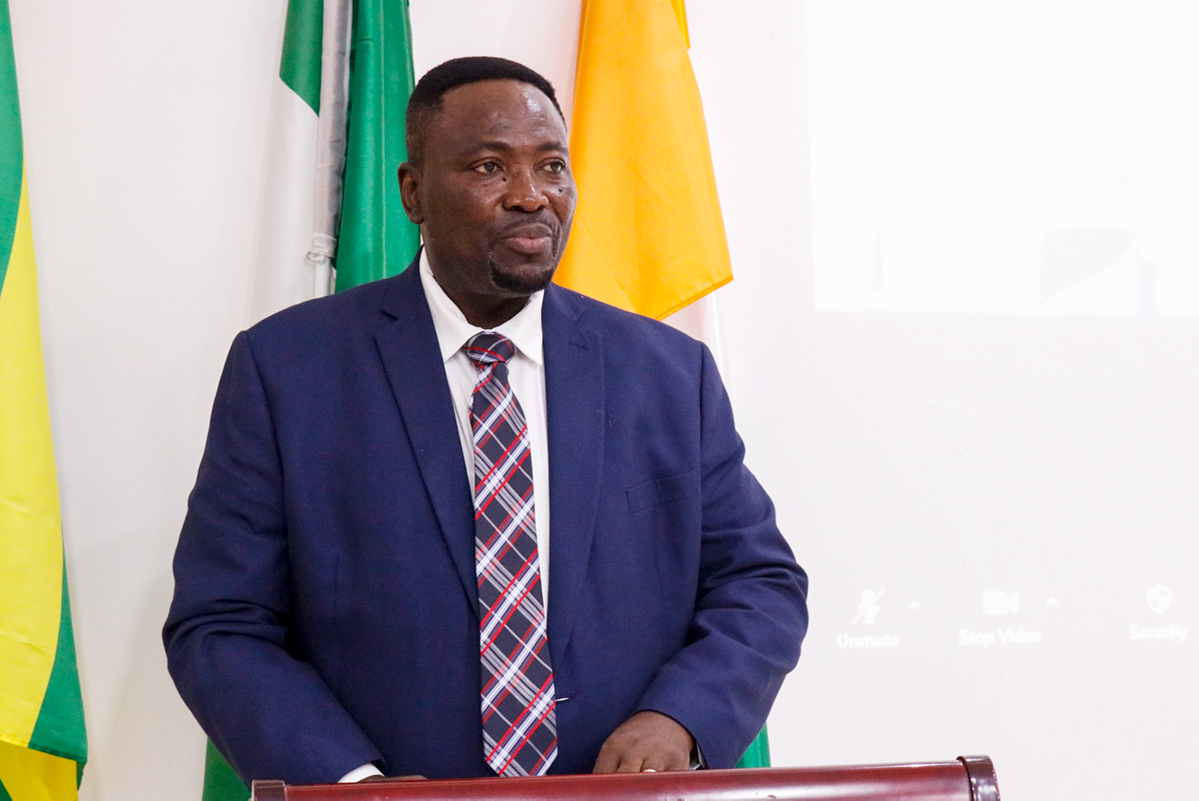The Pro-Vice-Chancellor of the University of Professional Studies, Accra (UPSA), Professor Charles Barnor, has disclosed that UPSA is open to purposeful partnerships and collaborations that would lead to international competitiveness.
Speaking at the opening session of the first phase of the UPSA/DAAD-DIES 2022 National Multiplication Training (NMT) workshop for some twenty (20) selected managers of higher education institutions on Wednesday, February 25, Prof Barnor asserted that international partnerships and collaborations in higher education have become an essential tool for addressing societal needs through breakthrough collaborative research and application of knowledge from research outcomes.
He, however, added that despite the invaluable benefits of international collaborations, there was the need for higher education institutions and their international collaborators to take a second look at their partnership projects, which he says often do not bring about the needed development or transformation.
He is therefore proposing a paradigm shift in the international partnership structure from an aid-based partnership to a mutually-beneficial partnership where the parties involved can contribute their expertise in equal measure.

“For several decades, international partnerships and collaboration in higher education have been between the global North, i.e., the well-developed countries, and the Global South, i.e., the less developed nations,” Prof Barnor averred.
“Sadly, most of these partnerships have not exhibited the true characteristics of partnership but what I will call hand-outs or donor-recipient relationships which have been described by other scholars as aid-based partnerships or one-way streets, where the basic framework emphasises donor-recipient relationship.
“In these kinds of partnerships, the partners from the Global South are often restricted to minor roles such as translators and data collectors in the case of say research.

“As a university, we are of the view that this type of aid-based partnership or collaborations do not bring development and should therefore change to [a] mutuality-based partnership where the parties are expected to contribute their know-how in equal measure or proportionately,” he stated.
The Pro-Vice-Chancellor further stressed that for this to be realised, higher educational institutions in the Global South must demonstrate their capacity to play active roles in international partnerships and collaborations.
The NMT is an initiative of the Dialogue on Innovative Higher Education Strategies (DIES). It is jointly coordinated by the German Academic Exchanges Services (DAAD) and the German Rectors’ Conference (HRK), and funded by the German Federal Ministry of Economic Cooperation and Development (BMZ).

During the three-day residential course, participants will build their capacity in various subject areas of University management including project management, internationalisation, intercultural communication, and management of international partnerships and collaborations.
Key resource persons who will be facilitating the workshop include Dr. Birgit Barden-Laufer (international expert), Prof. Rosemond Boohene (Regional Expert and Pro-VC of the University of Cape Coast), Prof. Abigail Opoku Mensah (Local Expert and Team Lead).
The rests are Prof. Ibrahim Mohammed and Prof. John Kwaku Mensah Mawutor as Local Experts/Trainers with Prof. Albert Puni, Prof. Candice Moore and Mr. Daniel Hormeku as Guest Speakers.



